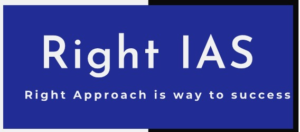Current affairs 20th July By Right IAS
Supreme Court to Hear Presidential Reference on Governor/President Role in State Bills
A five-judge Constitution Bench of the Supreme Court will hear a Presidential Reference under Article 143 of the Indian Constitution. Main Questions in the Reference: On Time Limits: Can judicial orders impose time limits on the Governor or President when the Constitution doesn’t specify any?
Can courts define the manner in which these constitutional authorities should act?
On Use of Article 142: Can Article 142 (used by courts to deliver complete justice) override constitutional provisions related to President/Governor powers?
Is it proper to use Article 142 to substitute the decision of the Governor or President?
On Deemed Assent: Can a State Bill become law without actual assent from the Governor or President?
Is the idea of “deemed assent” constitutional?
Can courts intervene or pass judgment on a Bill before it becomes law?
Why It’s Important: The issue questions the balance of power between the executive and judiciary. It seeks clarity on what the Governor/President can and cannot do, and whether courts can direct their actions. The “deemed assent” concept introduced by the Court may limit executive powers and is being challenged as outside the constitutional framework.
What the Court Will Examine: Scope of Article 142: Can it alter or bypass powers given to the Governor/President?
Interpretation of Articles 200 & 201: What are the constitutional duties and rights of the Governor/President when a Bill is sent for assent? Justiciability: Can courts interfere before a Bill becomes law?
